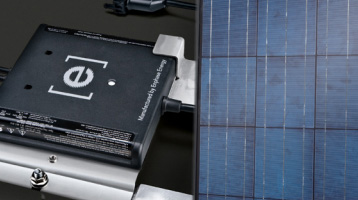Solar energy technologies use the sun’s energy and light to provide heat, light, electricity, and even cooling, for homes, businesses, and industry. There are a variety of technologies that have been developed to take advantage of solar energy.

Photovoltaic systems, also known as PV, are solar energy systems that produce electricity from sunlight. This clean, reliable energy is produced without consuming fossil fuels, can be used in a variety of applications and is becoming more affordable all the time for homes and businesses. PV works best and is most cost effective in energy efficient buildings so adding more insulation, newer windows, energy star rated appliances and compact fluorescent lighting is a good idea to ensure that your overall electricity load is minimized before choosing a PV system. This is not as critical when a budget is involved and you only have the resources to offset 25-75% of your electricity bill but should always be considered even after the installation of a PV system if reducing energy and cost is your goal.
Financial incentives from the state and government, growing technology and demand are making PV systems more affordable through rebates and lowering prices of PV modules. Some utility companies further enhance the economics of PV by having net metering programs. Net metering takes place when your PV system generates more power than your home or business consumes and the excess energy gets pushed out to the grid which is sold back to the utility company resulting in your meter spinning backwards and allows you to receive full retail value for the power your PV system generates.
If you are thinking about buying a PV system for your home or business then careful planning coupled with professional advice will help you make the right decision for this substantial investment.